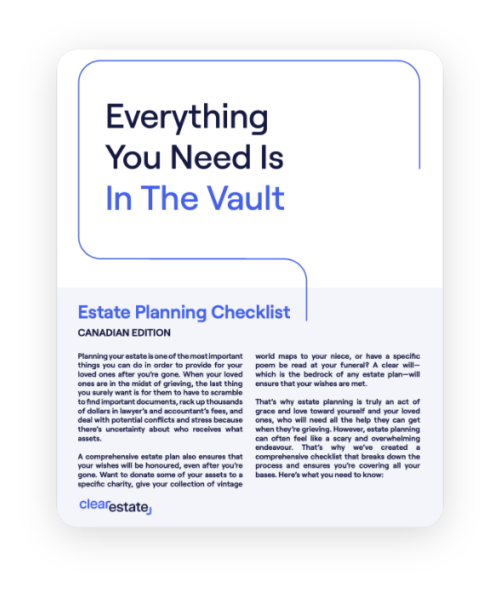Estate Planning
Feb 13, 2026
Executor of a Will: What the Role Involves and When to Seek Professional Help
Preparing an estate plan and feeling unsure about who to name as executor, or even what the role entails? We explain below.
There are a couple of non-negotiables when creating a legally binding will in Alberta. We'll break it down for you.


Creating a will can feel like a daunting endeavour, and it’s understandable that it’s not a topic people necessarily want to spend a lot of time thinking about. However, over half of all Canadians don’t have a will. If the worst were to happen, your property and your assets would not be distributed according to your wishes, and your family and loved ones may not receive the inheritance you envisioned for them. As such, creating a will ensures that your wishes are followed to the letter, and that you can rest easy knowing that everyone you care about will be taken care of after you’re gone.
Many people are also hesitant about creating a will because they believe they need an expensive estate lawyer or notary to create a legal will. While enlisting the help of a professional can be a solution for those with very complex estates or those seeking to establish multiple wills (a personal and a professional one, for example), the truth is that most people can create a legally binding will on their own, or with the help of a trusted expert like ClearEstate, at a fraction of what it would cost if a lawyer were involved.
We regularly share relevant information about wills and estates.
There are a couple of non-negotiables when creating a legally binding will in Alberta. They are as follows:
Holographic wills are wills that are handwritten and are only signed by you, sans witnesses. As you can probably imagine, these are usually created in emergencies. Some provinces in Canada, including British Columbia, don’t recognize holographic wills, but in Alberta they’re perfectly valid.
As long as your will follows the requirements set forth above, it will be considered legal in Alberta. In order to ensure your will properly reflects your wishes, you should plan on updating your will every five years or so, or whenever a major life change like a birth, a wedding, or a divorce happens.
Your will should cover all of your assets that aren’t jointly held, like property deeds or financial accounts. You should ensure that your will covers all of your beneficiaries as well as any friends you’d like to bestow your assets to. If you have pets, you should include instructions on pet care in your will, and set aside funds for their wellbeing. Your will should also include any charities that you wish to donate part of your assets to, if that’s the case.
Do you have any questions about writing a legally binding will? Get in touch with us for a free consultation today.
 Secure Your Legacy
Secure Your Legacy
Get your free 12-step Estate Planning checklist now. 89% of readers complete their estate plan within 3 months of using our guide.
Instantly Access Now